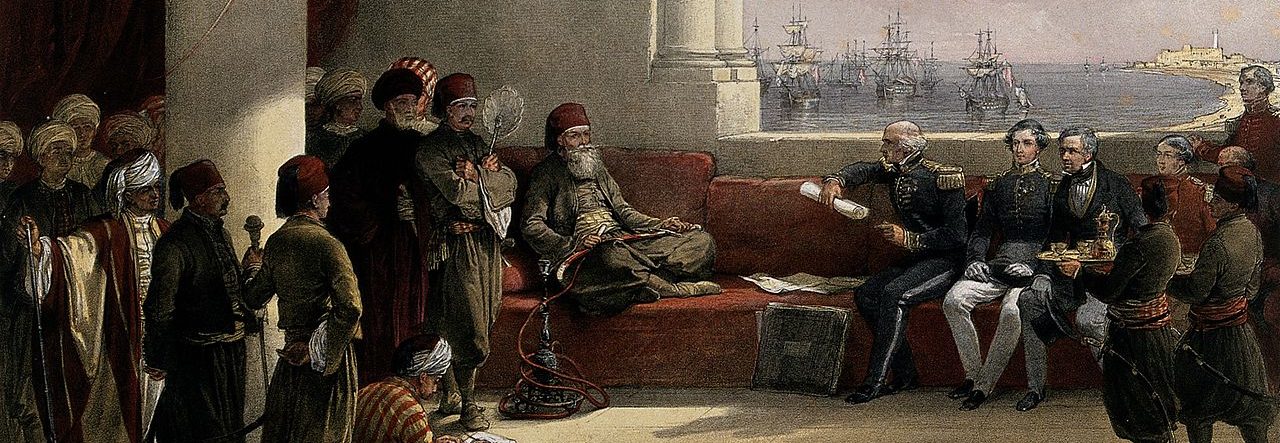During these days in April, fifty years ago, Israel was engulfed in turmoil.
On April 1, 1974, the Agranat Commission, a national commission of inquiry established to investigate the failures of intelligence and preparedness leading to the Yom Kippur War, published its initial findings. It laid most of the blame on IDF Chief of Staff David (“Dado”) Elazar and Director of Military Intelligence Eli Zeira, leading to their immediate resignations. But the commission found no fault with Prime Minister Golda Meir and Defense Minister Moshe Dayan. The commission concluded that “reasonable conduct” for a government minister effectively equated to merely rubber-stamping the advice provided by military commanders.
Protests erupted over the lenient treatment of Israel’s political leaders, particularly Dayan. As the minister of defense in 1967, he had garnered laurels for the victory. Now, holding the same office, he was evading responsibility for the catastrophe. The protests overwhelmed Meir, who was already burdened with guilt and remorse. On April 10, she resigned, automatically precipitating the government’s collapse. After a new government was established in June, Meir retired from politics, and Dayan exited the cabinet, his prospects for leading Israel irreparably damaged.
In the six months from October 1973 to April 1974, Israel had struggled to regain its footing. After the initial Arab offensive, Israel turned the tables on two Arab armies backed by the Soviet Union. In November, Israel concluded a prisoner exchange with Egypt, and by January, it reached a separation of forces agreement in the Sinai. (Similar agreements with Syria were secured in May.) At the end of December, Israel conducted delayed elections, which were originally scheduled for October. Meir led Labor to an electoral victory, albeit with a diminished majority. Meanwhile, throughout that winter, the commission of inquiry meticulously gathered testimony from Meir, Dayan, Elazar, Zeira, and fifty-four others across 140 sessions.

First meeting in Jerusalem of the Agranat Commission, November 27, 1973. Credit: Sa’ar Ya’akov, National Photo Collection, Government Press Office.
As Abba Eban, then Foreign Minister, later recalled,
the imminent publication of the Agranat report brooded over our scene like a hot, humid sky waiting to explode. When the cloudburst came, all the elements of stability in our society were flooded away. If the intention in appointing the committee had been to bind up the nation’s wounds, the exact opposite occurred.
Israel could only move forward if the leaders responsible for the catastrophe departed. Only then, and despite the pain of huge losses, could Israel begin to rebuild and heal. Meir’s resignation finally made that possible.
The numbing of Israel
Compare the situation today. We are also six months into an October war, the one that began on October 7, 2023. The IDF is still fighting, not against two armies but against two terrorist groups. Over a hundred innocent Israeli hostages are still being held in Gaza by Hamas. Tens of thousands of citizens are displaced from northern Israel by Hezbollah fire, and cannot safely return to their homes. The government hasn’t established a commission of inquiry, and no official body has collected testimony under oath. There’s been no official assignment of responsibility, and no one has resigned. All this, we are told, must await the elusive “total victory.” Much of the public is still numb. Reconstruction and healing can’t begin.
Prime Minister Benjamin Netanyahu, on whose watch the October 7 debacle occurred, has effectively stopped the political clock: he will only explain himself “after the war.” In the meantime, he says that Israeli elections would be a victory for the enemy and, in any case, “elections have a date, it’s in a few years.”
When asked about his responsibility, he avoids mentioning the obvious parallel of Yom Kippur and promotes other, more remote analogies: “Did people ask Franklin Roosevelt, after Pearl Harbor, that question? Did people ask George Bush after the surprise attack” of 9/11? His preference is self-explanatory: FDR continued in office for over three years after Pearl Harbor, and George Bush, over seven years after 9/11.
First shoots
Golda Meir wasn’t enthusiastic about the idea of a commission of inquiry, and even told her government that “heads would not roll.” But she understood that Israel needed an accounting. Despite her formal exoneration, she accepted the verdict of an angry public, despite having won an election after the war.
Benjamin Netanyahu isn’t enthusiastic either but sees no need for an accounting. Après moi, le déluge could be his motto; and though the deluge actually occurred on his watch, he predicts a worse outcome if it sweeps him away. (One outcome, certainly worse for him, involves battling criminal charges in court.) So, whereas there was a public accounting and a course correction in 1974, today, neither has occurred.
Still, one enduring lesson of both October wars is that even when nothing seems to be happening, something is stirring. Political protests are sprouting from the ashes. Just as in the spring of 1974, so too in the spring of 2024, demonstrations are swelling in size and volume. Alongside these protests, the wider public’s demand for accountability intensifies. Those who occupied the nation’s top positions on October 7 will have to account for their actions or, more precisely, their inaction, sooner than they’d like. Israel’s very survival depends on rooting out the sources of catastrophic failures, lest such failures become normalized or, worse, routine.
That’s how Israel picked itself up in 1974. That’s what it must do in 2024.
Header image: Protestors call for the resignation of the government and Moshe Dayan, April 1974. Credit: Dan Hadani Collection, The Pritzker Family National Photography Collection, The National Library of Israel.




You must be logged in to post a comment.